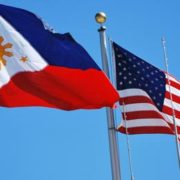The Philippines will get an additional $5.9 million (P298 million) from the U.S. government to help support its fight against the novel coronavirus.
The additional funding brings the total amount of U.S. pandemic assistance to the country to more than P768 million or $15.2 million, the U.S. Embassy in Manila announced on Thursday, May 7.
“As part of this new assistance, the U.S. Agency for International Development (USAID) will partner with 18 local governments in some of the Philippines’ hardest-hit areas to promote effective crisis management and implement response plans,” the embassy said in a statement.
The funding will be used to support local governments to rapidly disburse emergency funding and supplies, and strengthen the capacity of local crisis response centers to disseminate accurate and timely crisis response information, manage quarantine measures, set up public handwashing facilities, ensure food supply, and support local business recovery.
“Other activities funded through this new assistance tranche will provide supply chain analytics and promote a regulatory environment that facilitates logistics and transportation for food, medical products, and other essential goods,” the embassy said.
To assist with small and micro-enterprise recovery, USAID will also facilitate access to credit and provide grants and skills training to heavily affected sectors and communities.
U.S. Ambassador to the Philippines Sung Kim welcomed the new round of support to the country.
“This latest assistance builds on our long-standing relationships with local government units across the Philippines, and represents our continued commitment to our Filipino friends, partners, and allies in this time of crisis,” he said.
The additional funding from the U.S. also includes $875,000 (P44 million) from the U.S. Department of State’s Bureau of Population, Refugees, and Migration for the International Committee of the Red Cross to support COVID-19 response in the Philippines, including increasing stocks of essential medical supplies and expanding hospital capacity, preventing the spread of disease in detention centers, and supporting resilience for vulnerable people and communities. (Ritchel Mendiola/AJPress)






